Resurrections
In which Norm welcomes Via Vision's new Imprint editions of MOUNTAINS OF THE MOON, THE DRESSER, FACE TO FACE and LENNY.
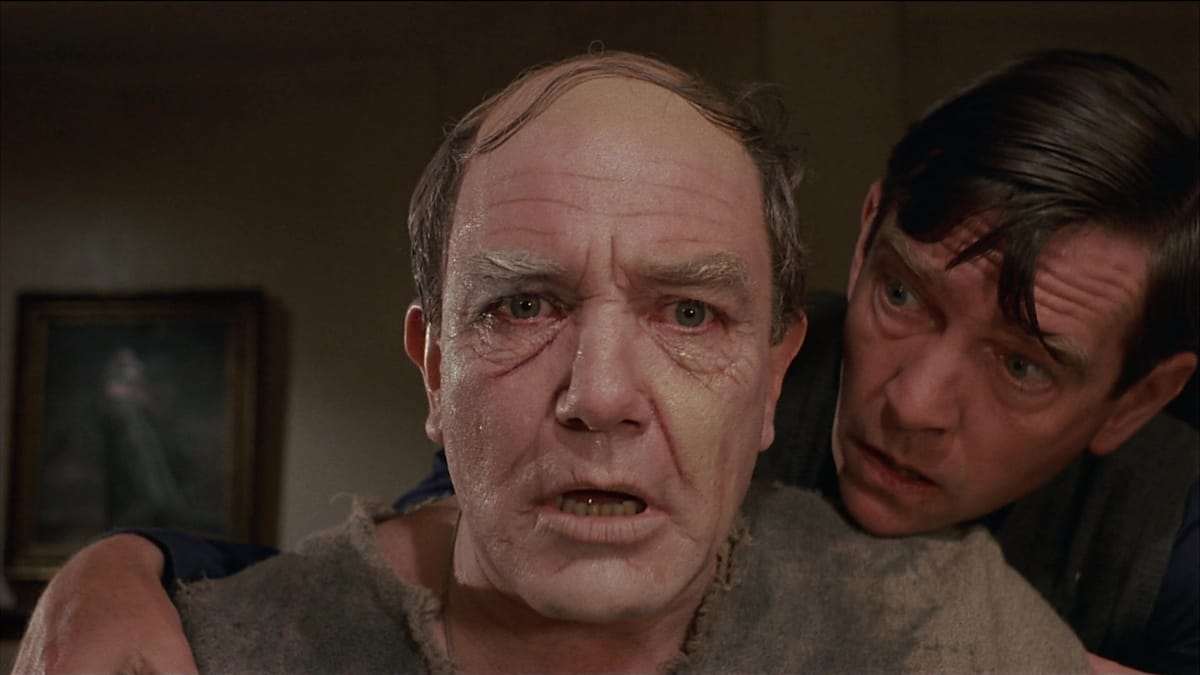
What would you say if I told you that once upon a time, Bob Rafelson – the maverick American filmmaker who gave us the Monkees’ Head and cemented Jack Nicholson’s rise with Five Easy Pieces and The King of Marvin Gardens – made a movie about the 1857 expedition of Sir Richard Francis Burton and John Hanning Speke into central Africa to find the source of the Nile? And that he got Roger Deakins to shoot it, and Thom Noble to edit it, and almost no one took notice?
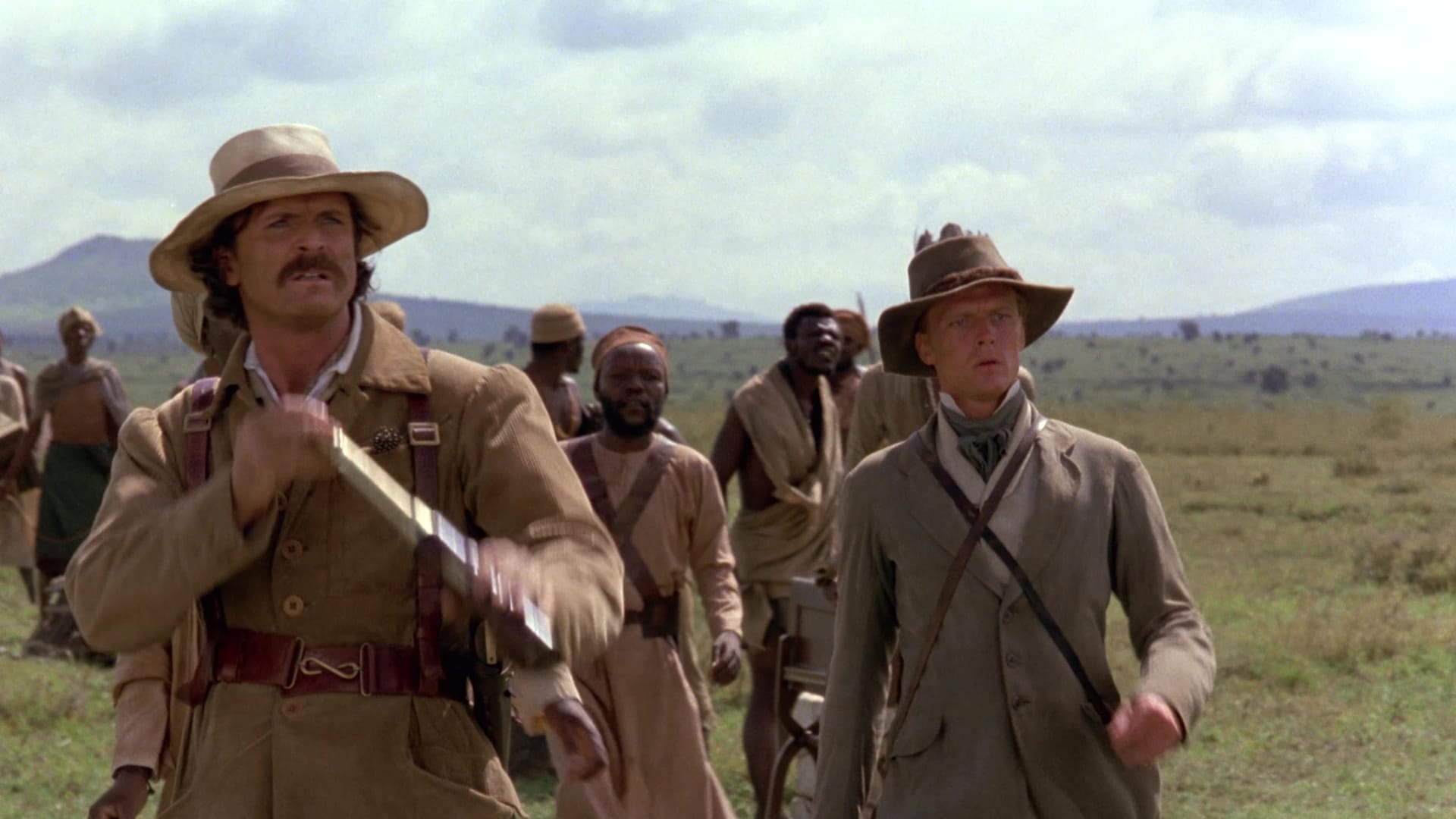
Well, that’s Mountains of the Moon, the 1990 drama starring Patrick Bergin as Burton and Iain Glen as Speke; Richard E. Grant was also in there, fresh off Withnail and I, because Rafelson had a brilliant sense of talent. Nearly 35 years later, the film is entirely uncharacteristic in Rafelson’s filmography … and also feels like his best work, a thoroughly considered character study that balances the internal and external challenges of a colonial adventure.
I may be somewhat biased, as Lawrence of Arabia is one of my favorite movies, and Rafelson’s film deliberately engages with its core theme of gifted interlopers who become even more dangerous when they convince themselves of their own mythological significance. (See also: John Huston’s adaptation of Kipling’s The Man Who Would Be King.) But Mountains of the Moon was made for a fraction of the cost of its predecessors, and released at a time when audiences were looking for films with the romantic sweep of The English Patient.
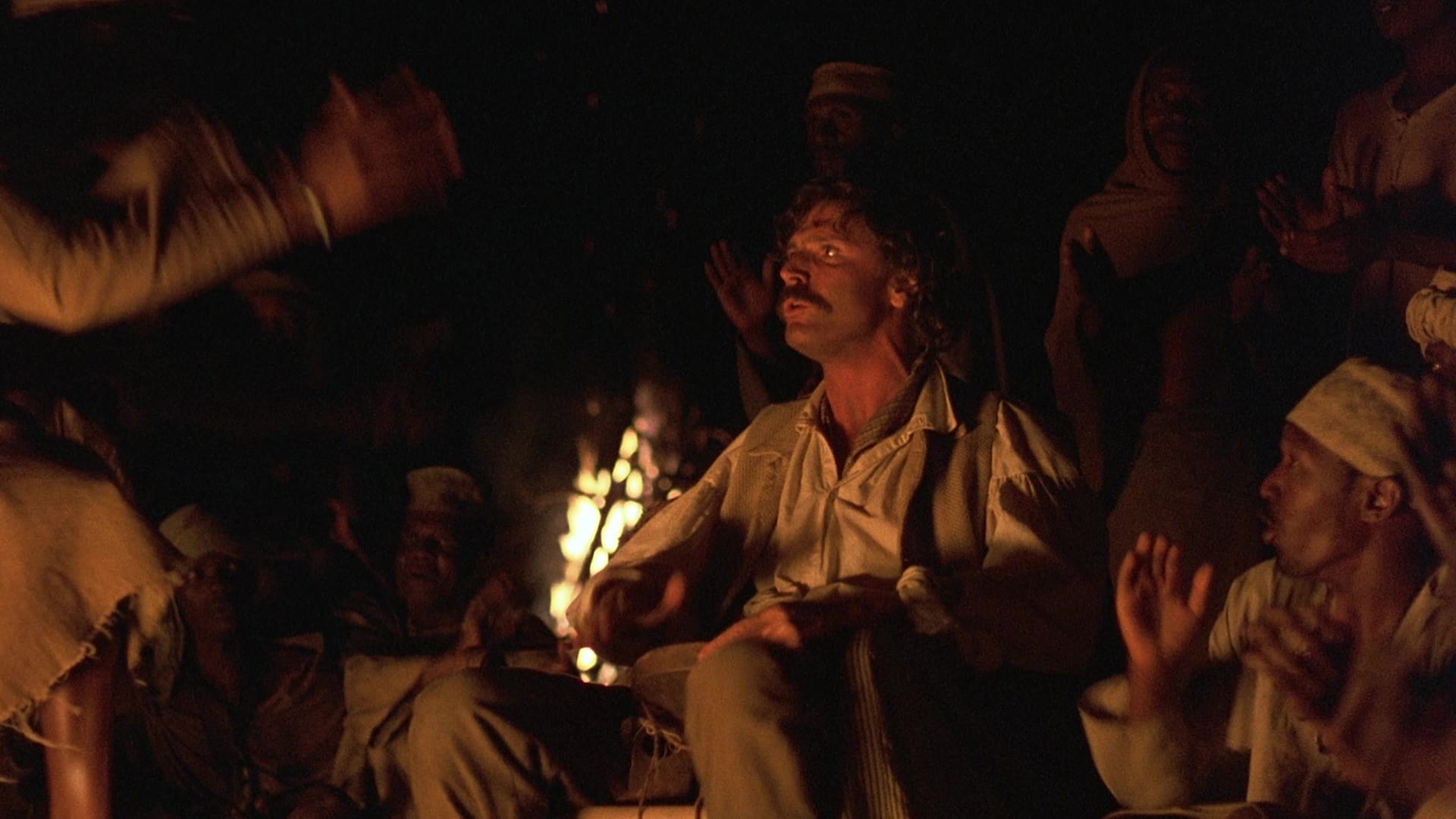
It barely opened, and subsequently had virtually no home-video presence. Thanks to a tangle of rights issues it’s been nearly impossible to find for decades, and none of those early releases looked particularly good. (The 4:3 widescreen transfer used for Pioneer’s LaserDisc release was also the source for both domestic DVD versions; a German disc offered a 16:9 presentation, but it was mastered in PAL.) But just last month, Via Vision released the film on Blu-ray for the first time anywhere as part of the Imprint line, so now I get to celebrate it properly.
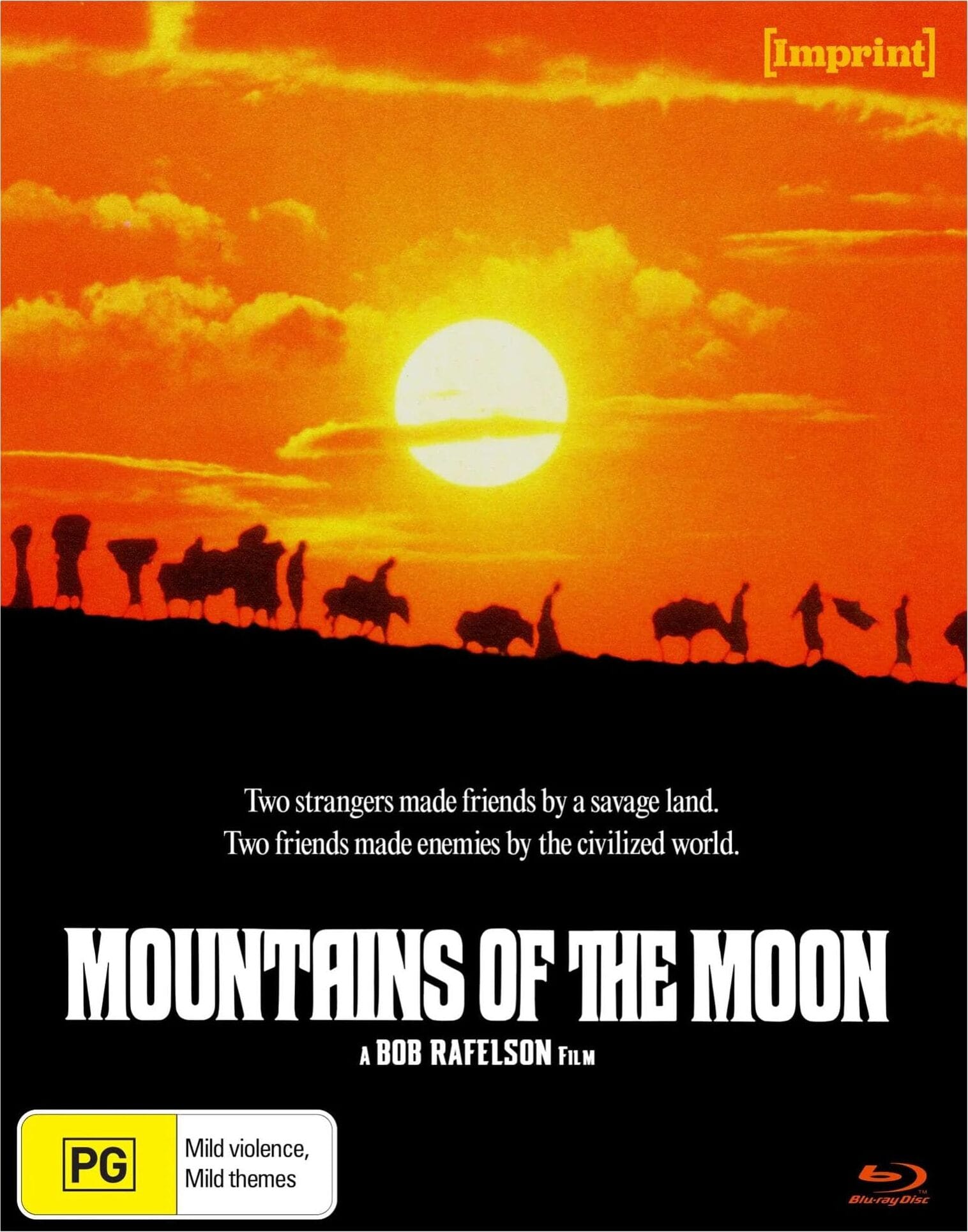
If you’ve never seen this movie … eh, who am I kidding, you’ve never seen this movie. Produced as a prestige venture for Carolco in between Total Recall and Terminator 2: Judgment Day, and based on William Harrison’s 1982 historical novel Burton and Speke, Mountains of the Moon follows the bosom friendship of its heroes – the world-famous Burton, who by the time the film opens had already established himself as a proper adventurer, as well as the public libertine who’d brought the Kama Sutra to Britain, and the more circumspect Speke, who preferred to do the work, publish a book about it, and then move on to the next odyssey. (The Nile trip was their second African expedition, after an initial venture into Somalia that left Burton scarred from a spear to the face and Speke badly injured as well.)
In the film’s thesis, Burton and Speke’s friendship is easy to explain: Both men were capable, intelligent egotists who could egg one another on into ever more ambitious adventures. Bergin and Glen’s performances also suggest the men shared a narcissistic streak that perhaps drew them to one another more than either would like to admit, and that their eventual falling out was rooted in that unspoken attraction.
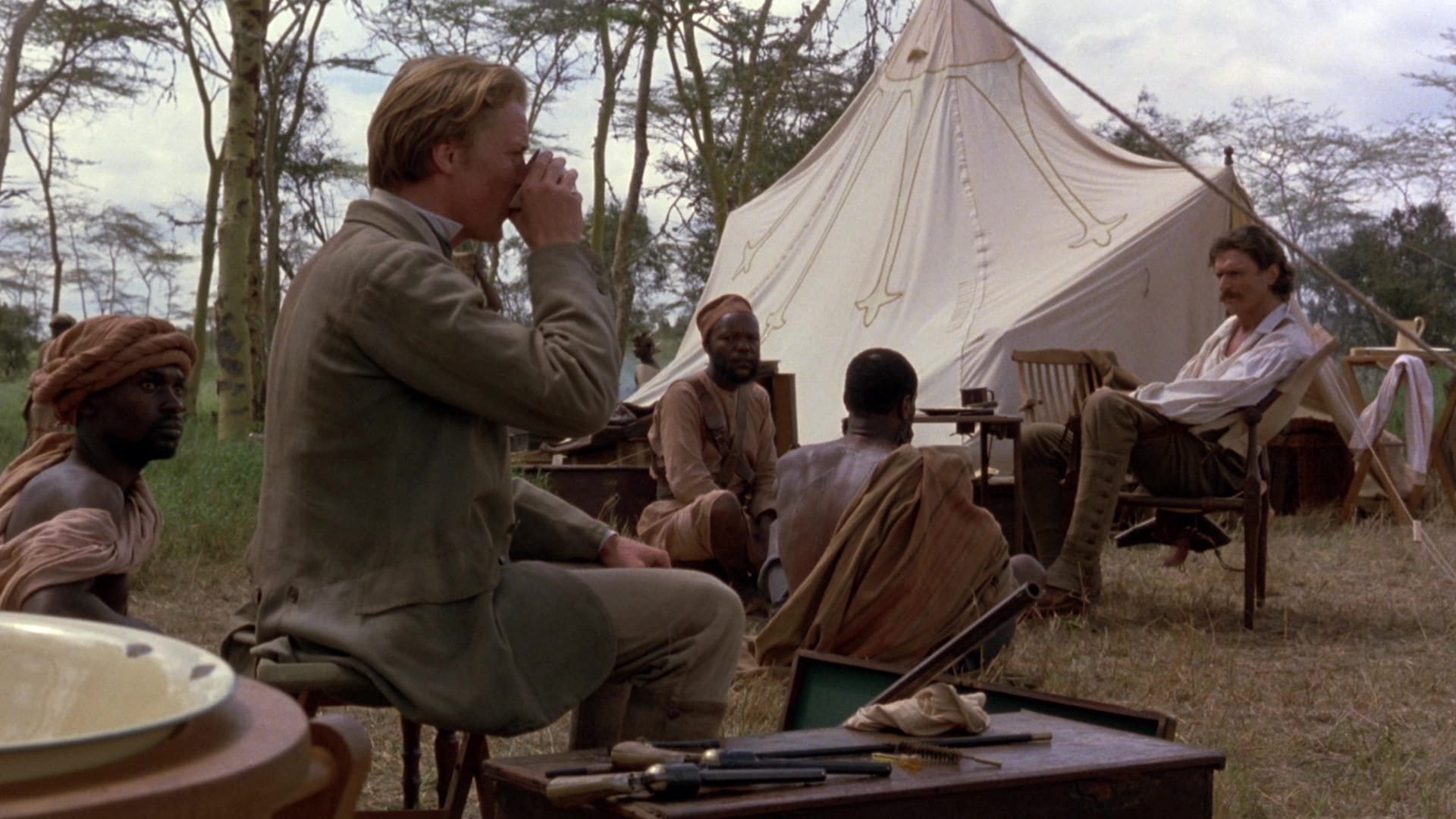
The explorers’ relationship has been described by contemporary historians as a bad marriage, and the actors find a sort of frustrated tenderness with one another that nudges toward homoeroticism without ever quite catalyzing into a spark. Burton and Speke are different with one another than they are with their friends, partners and colleagues, and that distinguishes Mountains of the Moon from all the other historical epics Rafelson draws upon.
The Imprint disc – again, the very first release of this film on Blu-ray anywhere in the world – is the special edition the film deserves, with a host of new supplements crafted by filmmaker and essayist Daniel Kremer and Imprint Films producer Josh Hibberd. And though Rafelson died in 2022, his presence is still keenly felt here.
Author Peter Tonguette provides an expansive audio commentary on the production and the real history from which Rafelson and Harrison spun their respective works, and Bergin remembers his experiences making Mountains in “An Irishman in Africa”, a picture-in-picture interview that plops a low-rez Zoom frame of Bergin against relevant film clips. (He praises Glen for the “slight edge of competition” that his co-star brought to their on-screen relationship.)
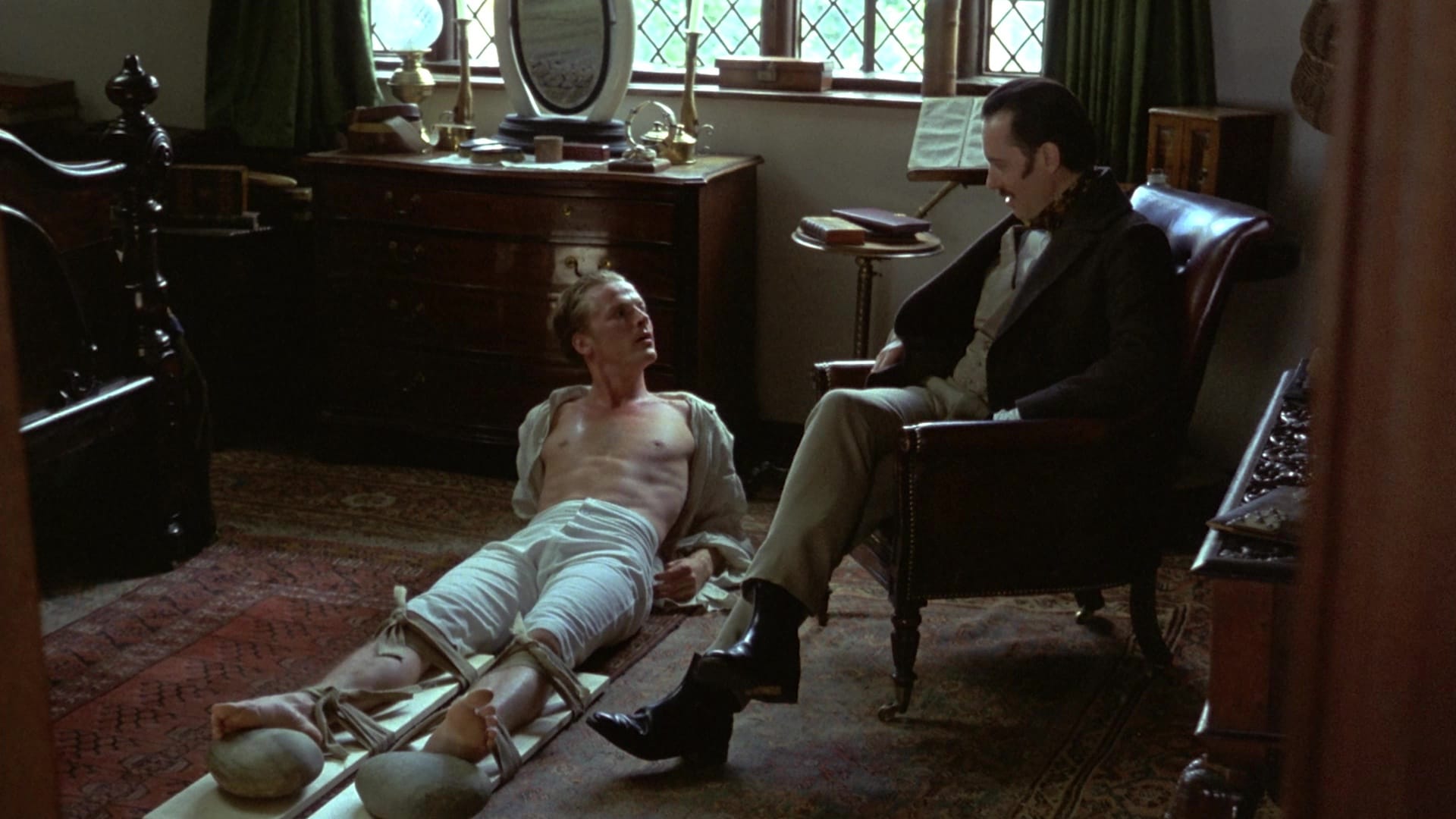
But wait, there’s more: Journalist Josh Karp discusses Rafelson’s own complex career – and the director’s need to make sure people appreciate this particular movie – in “And the Revolutions Followed Him”; Rafelson’s son Peter, now a producer himself, provides some additional insights in “A Mountainous Soul”. And director Henry Jaglom, whose movies owe a considerable deal to the New Hollywood spirit Rafelson helped conjure, contrasts his own career with Rafelson’s in “Be Careful with Obsessions: Bob Rafelson, Henry Jaglom, and Two Paths to Capturing Reality”. The original theatrical trailer and production featurette are also included.
It’s a more comprehensive edition one could have hoped for, given how the movie has been effectively abandoned for decades. And Mountains of the Moon wasn’t the only forgotten picture Via Vision brought to Blu last month.
The label also resurrected Peter Yates’ The Dresser and Ingmar Bergman’s Face to Face, bringing them back into circulation in all-region 2K editions. And they’ve been missed.
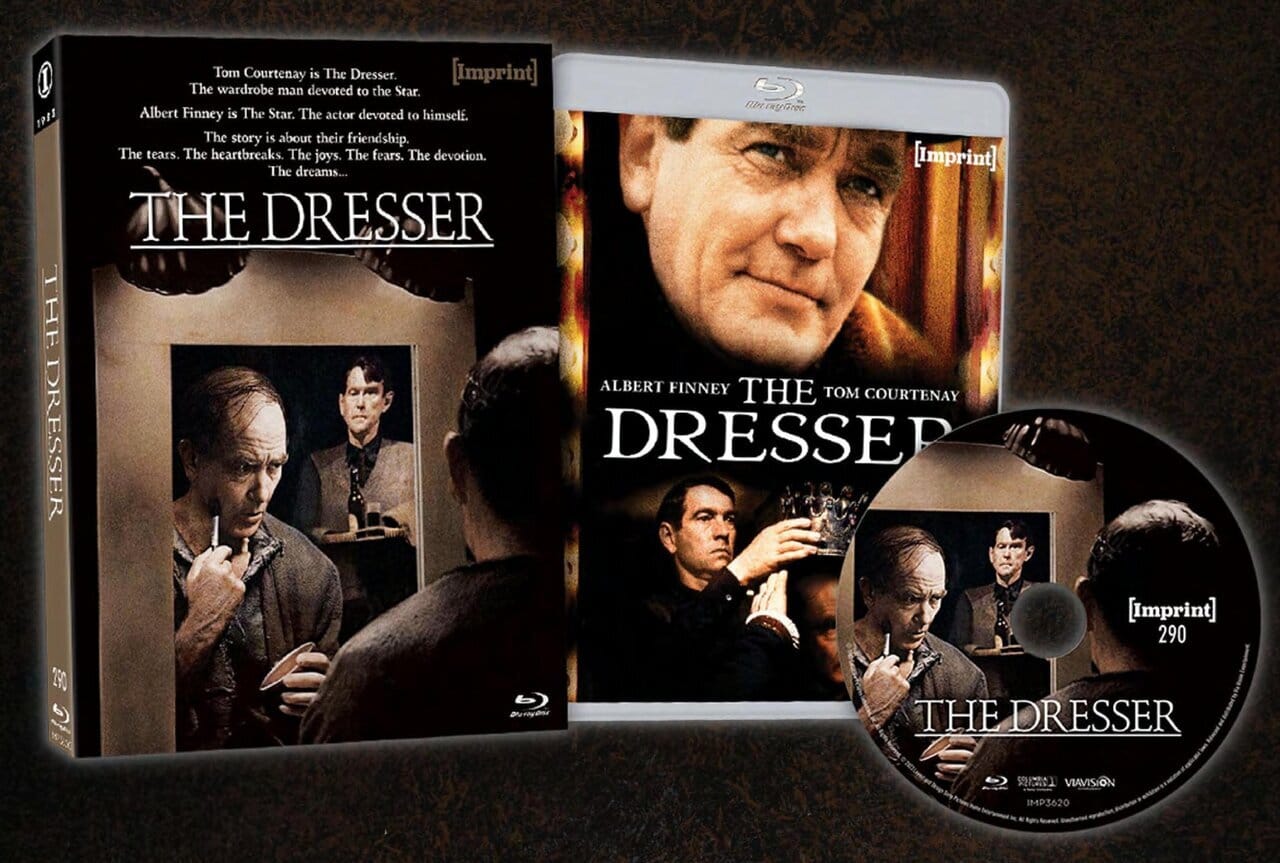
The Dresser turned Ronald Harwood’s two-man play about the relationship between a faltering English stage legend and his long-suffering but ferociously loyal backstage assistant into a proper tragedy played out in impotent rage by Albert Finney as the disintegrating Sir and strategic sniping by Tom Courtenay’s closeted Norman. Finney goes big, Courtenay goes small, and Yates captures the well-practiced rhythms of their arguments like the pro he is.
Harwood opens up the text to include the other members of Sir’s company, among them Zena Walker, Eileen Atkins, Edward Fox and Michael Gough, as they prepare to mount a production of King Lear in Bradford during the Blitz, but the focus remains squarely on Finney and Courtenay, who are exceptional. As unrequited relationship stories go, this pairs very nicely with Mountains of the Moon; I suspect Norman and Speke would have a lot to talk about. And in the rear view, it’s also one of the most acutely observed films about dementia, thanks to Harwood drawing on his own experiences as the dresser to the stage legend Sir Donald Wolfit. Once you know, you know.
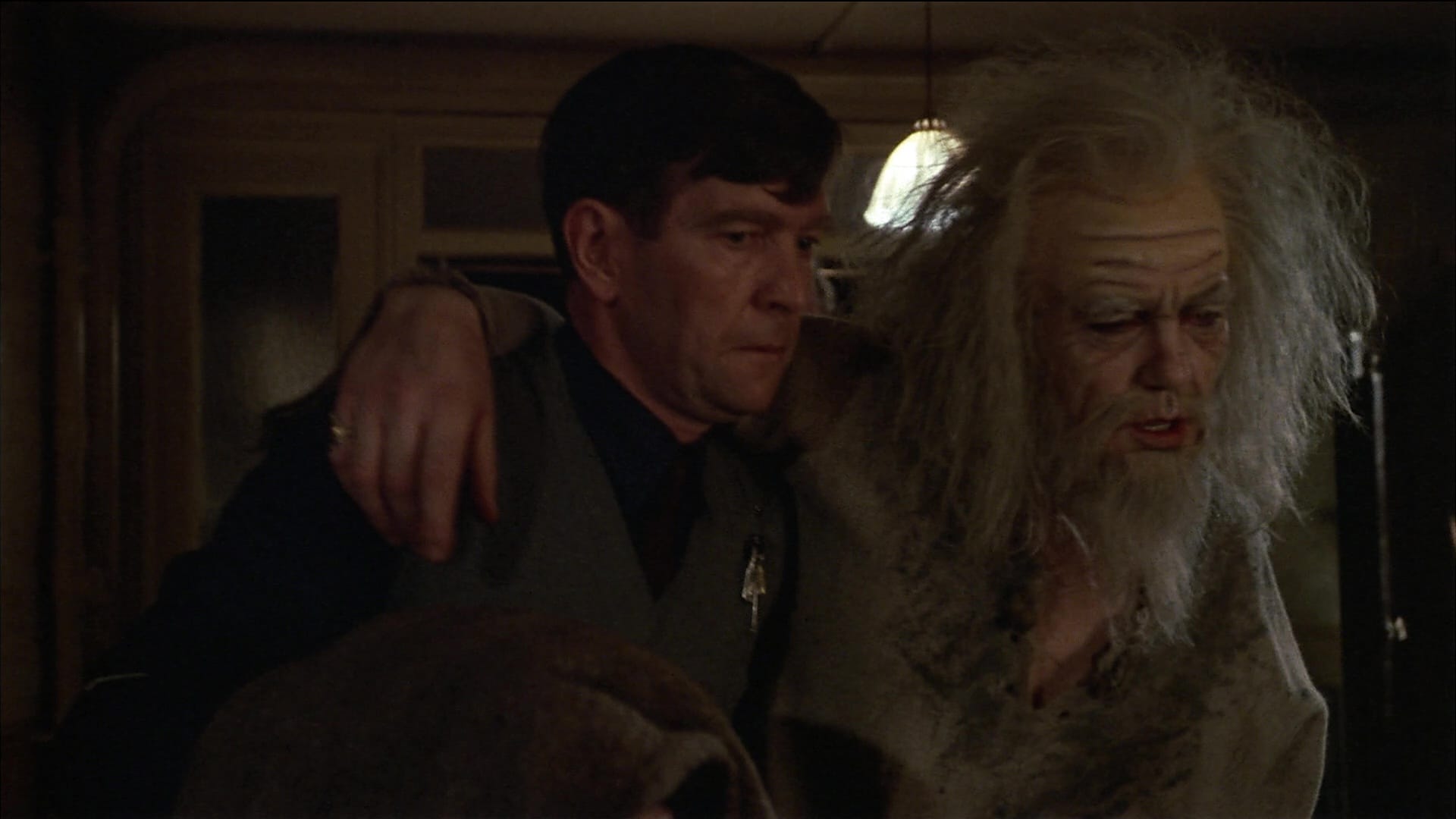
The Dresser pulled Oscar nominations for Best Picture, Best Director and Best Adapted Screenplay, losing in all three categories to Terms of Endearment; both Finney and Courtenay were nominated for Best Actor, and lost to Robert Duvall in Tender Mercies. And over the decades, it’s slipped down the memory hole. I thought it might get a re-release when the BBC remade the film for television in 2015 (with Anthony Hopkins as Sir and Ian McKellen as Norman, a brilliant pairing), but it didn’t happen. Nearly a decade later, Via Vision gives the film its due.
See also: Face to Face. And yes, this was one of a handful of features Criterion was unable to include in its massive Ingmar Bergman’s Cinema collection a few years back. It might be the most important one.
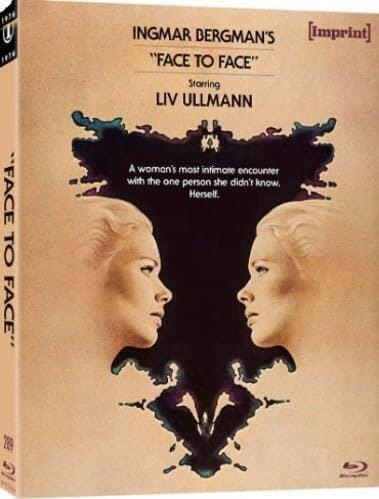
Face to Face casts Liv Ullmann – one of Bergman’s most auspicious collaborators – as Jenny Isaksson, a psychiatrist who takes a short-term posting as the supervisor of a mental hospital while her husband and daughter are occupied elsewhere. Since the grandparents who raised her live nearby, Jenny decides to stay with them, moving back into her childhood bedroom … and stirring up some old ghosts.
It’s a psychodrama heavy with symbolism and portent, like Persona, Through a Glass Darkly, Wild Strawberries and Cries and Whispers, and Bergman follows Jenny calmly but unflinchingly as the complex pressures of her current situation trigger the breakdown she’s been trying to outrun for years. Ullmann’s performance captures Jenny’s desperation and fragility as well the strength of the denial mechanisms she’s built for herself: As long as she doesn’t acknowledge she’s cracking, she’ll be fine. That’s how it works, right?
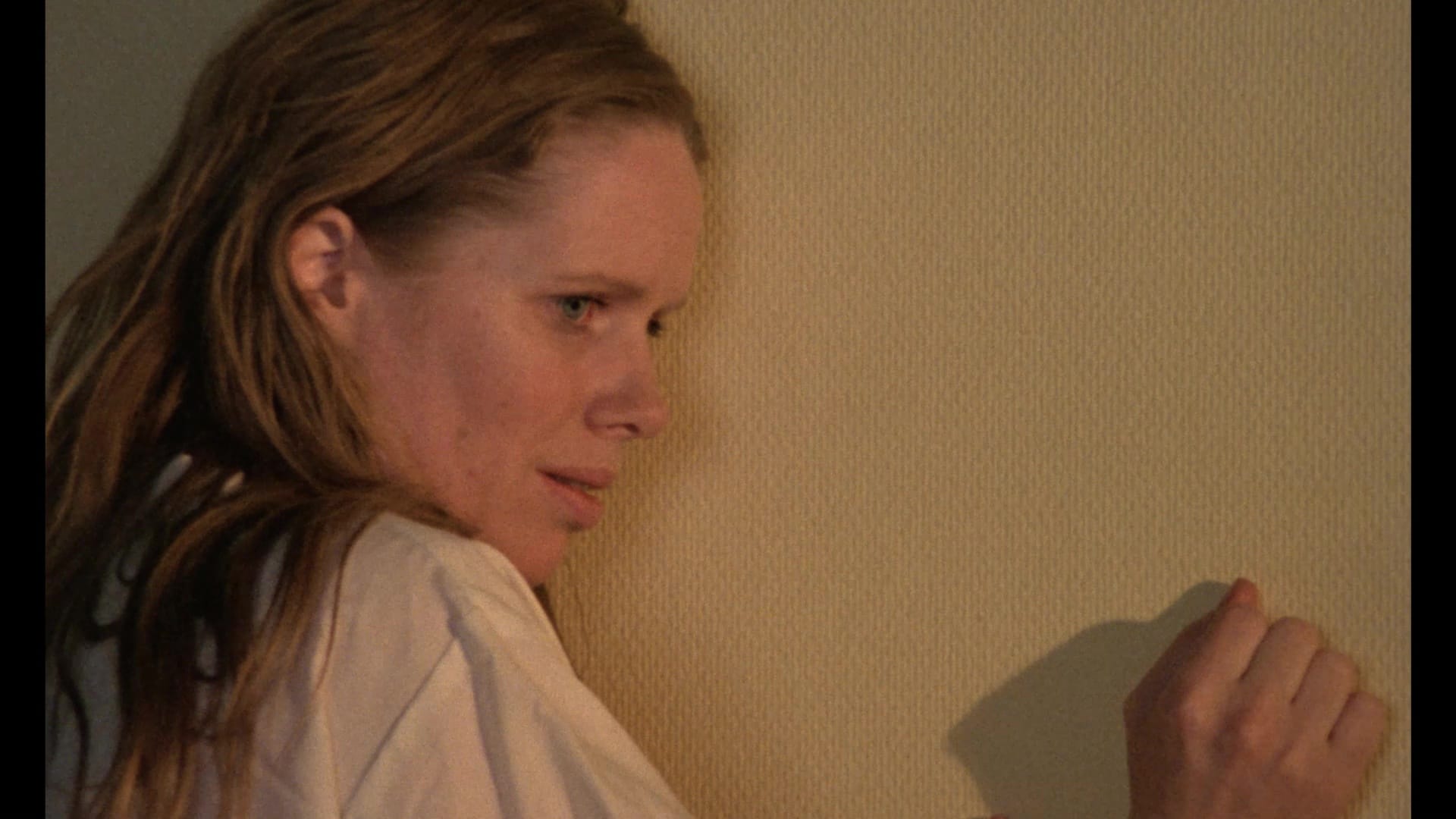
Like Scenes from a Marriage and Fanny and Alexander, Face to Face was produced as a miniseries for Swedish television and trimmed down for international theatrical release; unlike those projects, it wasn’t received with the same respect. Dino De Laurentiis got involved, “presenting” the theatrical release by cutting twenty minutes out of Bergman’s 135-minute version; the rights have been tangled ever since, meaning the only chance most people had to see it for decades were in increasingly rare rep screenings of beat-up prints.
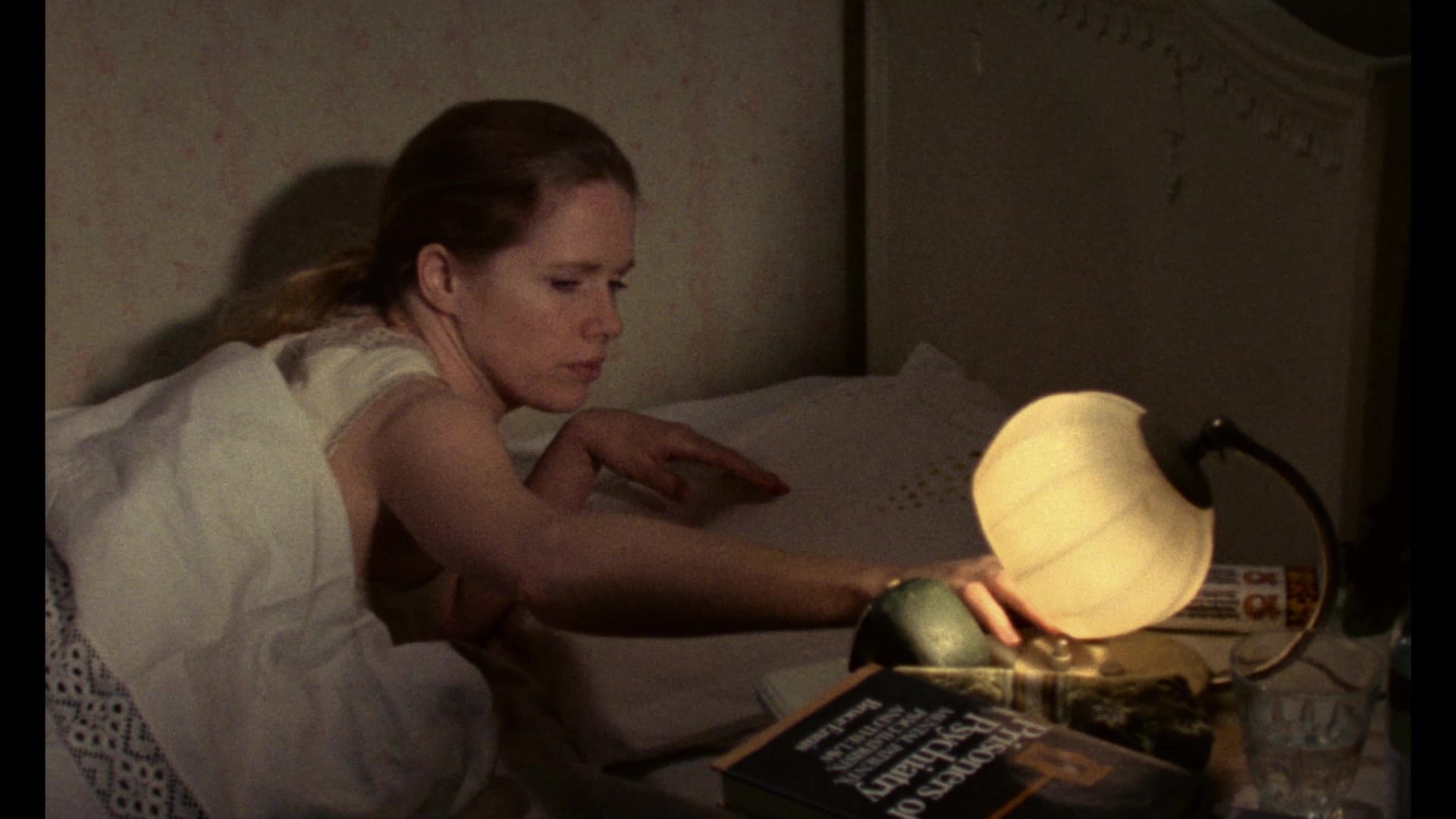
Via Vision’s disc, sourced from a StudioCanal master, offers Bergman’s intended theatrical version in considerably better shape than one might expect for a neglected film; this isn’t a restoration, digital or otherwise, but the source is decent – possibly an interpositive – with minimal damage. The image is a little soft, but given ’70s production trends I suspect it always was, and both the original Swedish audio and the English dub track are presented in lossless PCM mono. (And in both soundtracks, it’s downright jarring to hear American pop music playing in the background of an otherwise staid and serious party scene, piercing the illusion that Bergman’s films exist in their own dramatic vacuum.)
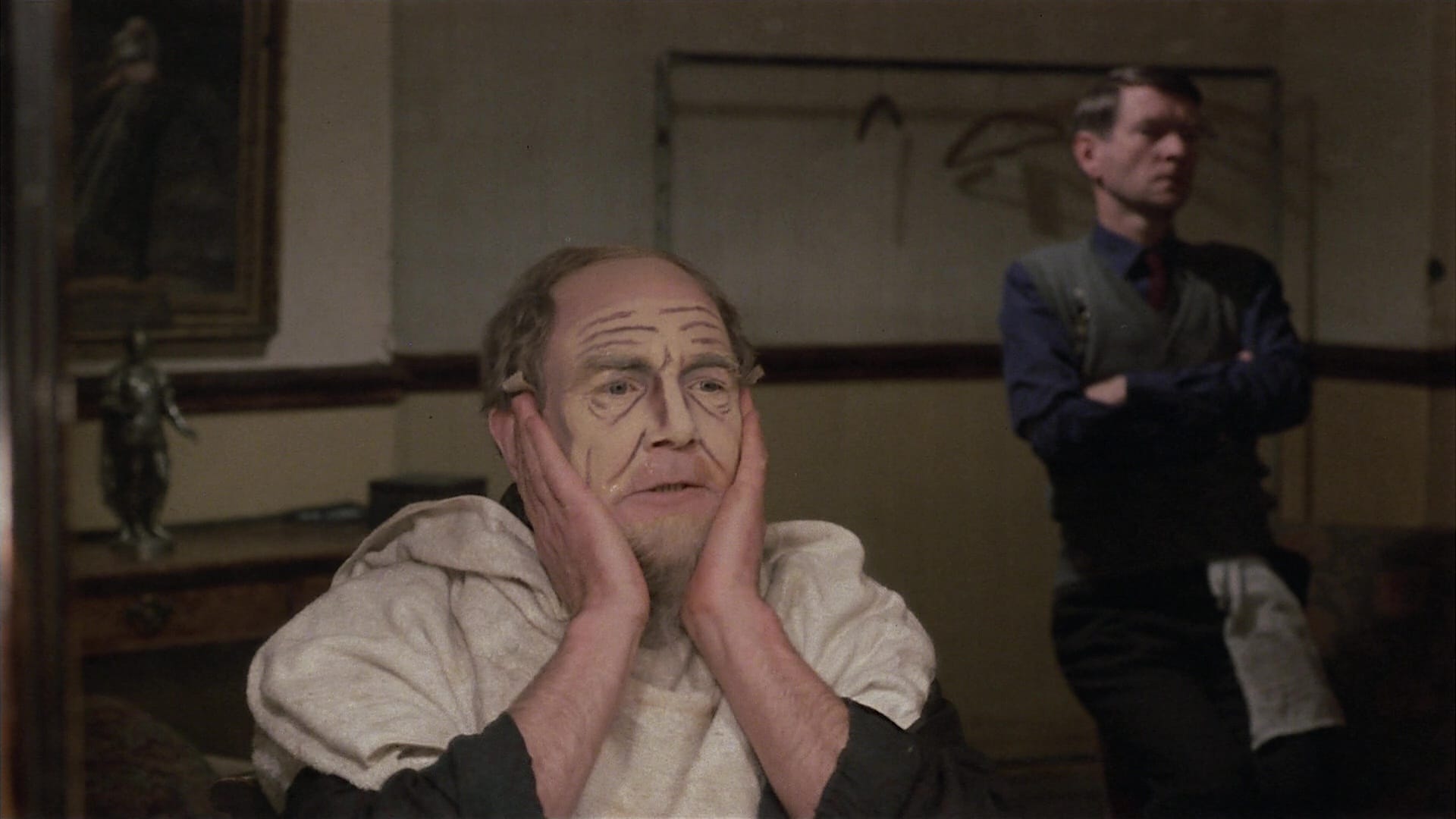
There are no extras on The Dresser, which is a shame, but given that Finney, Yates and Harwood are all dead it makes an odd kind of sense that Courtenay isn’t forced to represent the project on his own. Norman already got the last word, after all.
Face to Face, on the other hand, comes to play, with a thoughtful audio commentary from film historian Michael Brooke and another visual essay from Ellinger, “The Silence: Face to Face and Feminine Rage”, that examines Bergman and Ullmann’s feature-length depiction of a quiet breakdown, and places the film in a historical context alongside other ’70s interpretations of women cracking under internal and external pressures, such as Frank Perry’s Diary of a Mad Housewife, Paul Mazursky’s An Unmarried Woman, Karen Arthur’s Legacy – and, of course, Chantal Akerman’s Jeanne Dielman. It’s an argument that’s hard to refute.
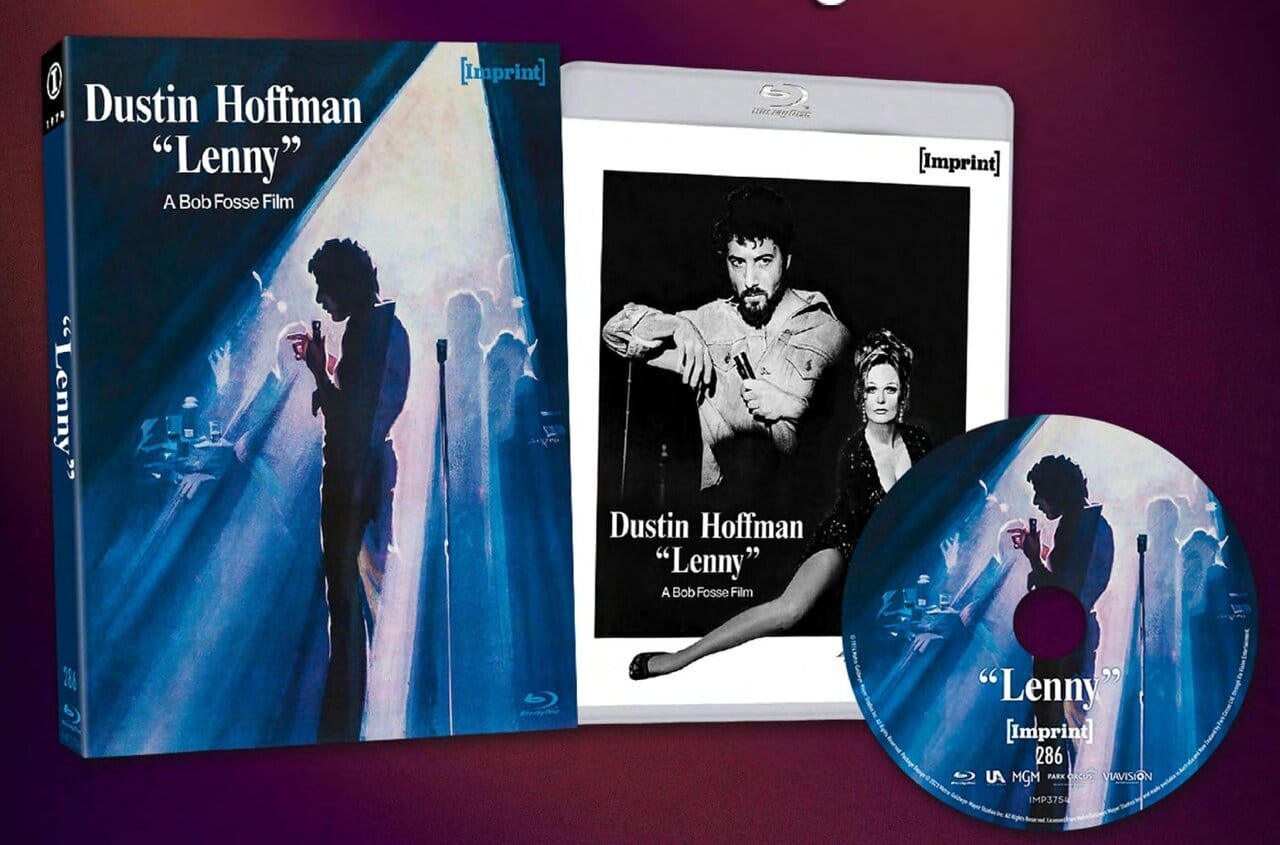
Not new to Blu-ray, but fairly hard to find until Imprint reissued it last December, is Bob Fosse’s Lenny. If you’ve been kicking yourself for not picking up the Twilight Time Blu-ray of this still-prickly 1974 biopic of Lenny Bruce, this edition offers the same excellent transfer, along with the isolated music and effects option and Nick Redman-Julie Kirgo audio commentary that accompanied it, and throws in some nifty new extras to tempt you further.
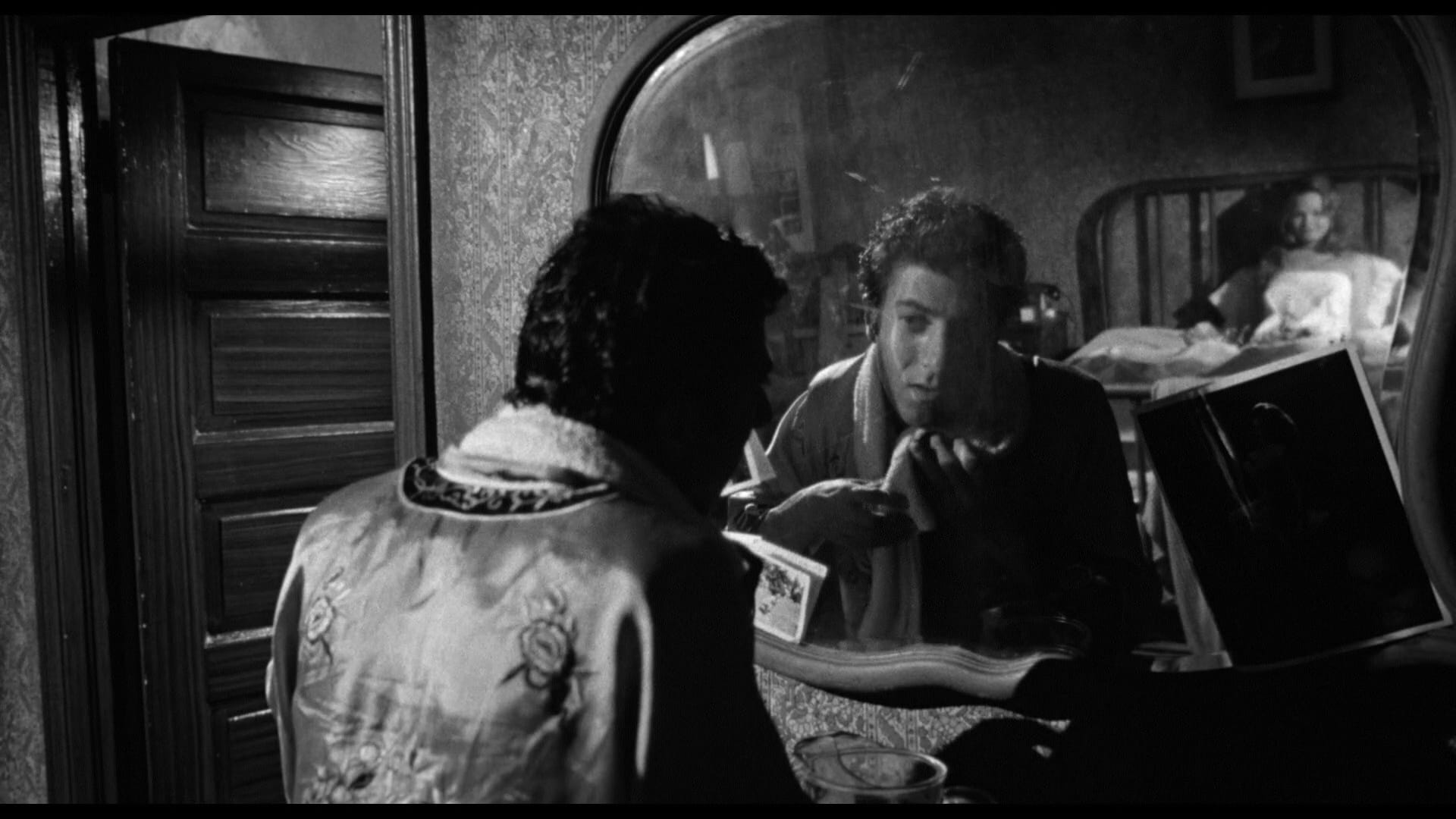
A new audio track pairs critic Daniel Kremer with our old pal Henry Jaglom, who has some stories to share about the confessional mode of American popular art Bruce helped create; Kremer also writes and directs a video essay, “Dead Neon: The Many Faces of Lenny Bruce on Film”, which offers a look at the influence of Lenny’s verité affect – and Fosse’s stylistically complex studies of art and artists – on other biopics, as well as a consideration of other fictional representations of Bruce in movies and television.
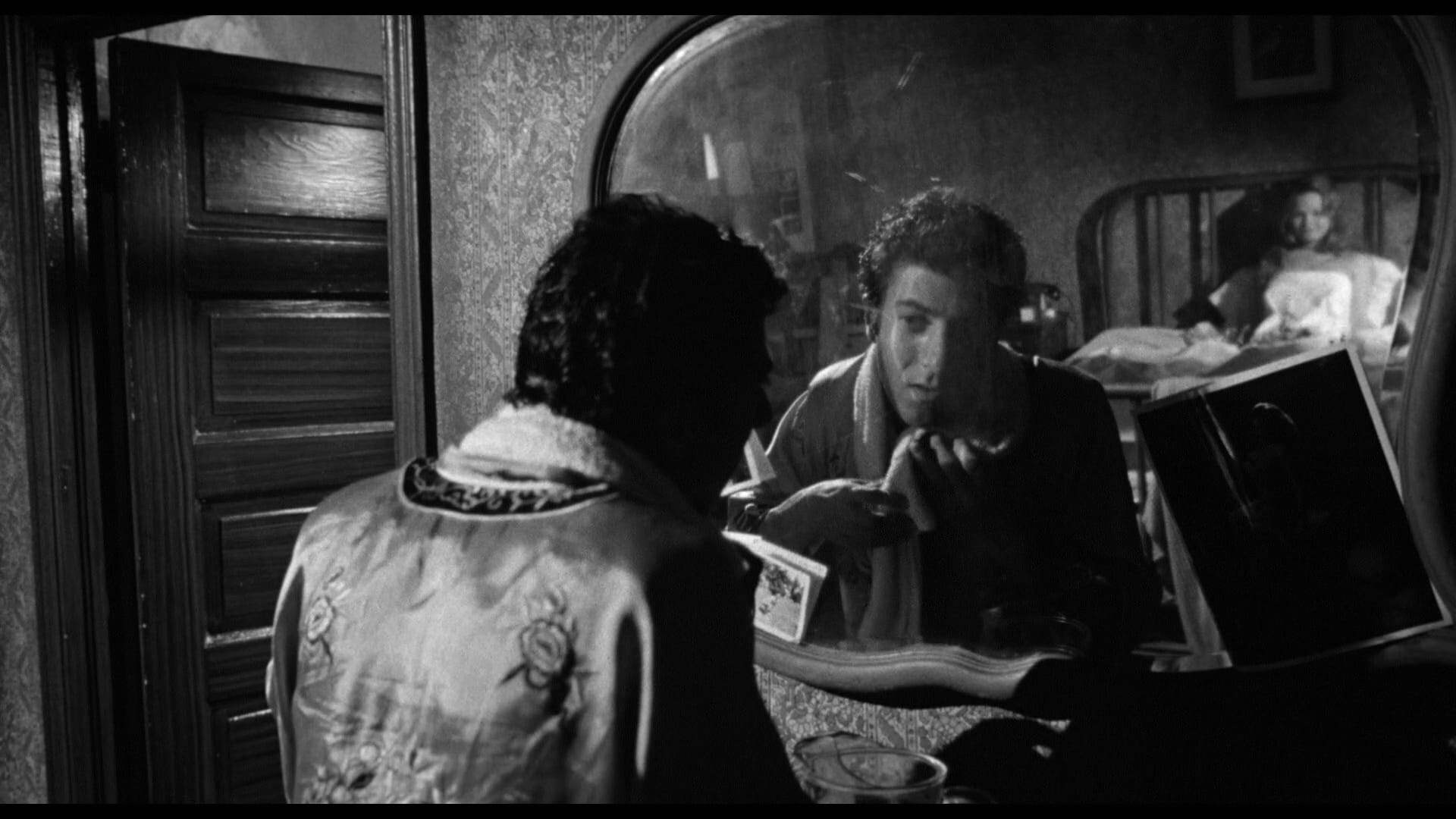
Finally, “On Fosse Time” is a new interview with editor Alan Heim – a key presence in Via Vision’s recent Directed by Sidney Lumet boxed set – about assembling Fosse’s tricky chronology. Finally, there’s the movie’s Trailers from Hell episode featuring Robert Weide, director of the Bruce documentary Swear to Tell the Truth.
I know I keep repeating myself, but the truth is the truth: Imprint is doing fantastic work keeping movies alive, and doing it from an angle not often attempted. None of these films is necessarily considered its director’s best work, and maybe you haven’t thought about a given title in years, but that’s because it’s been missing. Every one of these movies has value, and now they’re available in the best condition possible, most of them with newly commissioned supplements. Get to shopping.
Mountains of the Moon, Face to Face, The Dresser and Lenny are available Vision and in a few very special brick-and-mortar stores around the world.
In this weekend’s paid edition: Vengeful ghosts abound in 4K as Shout’s Ring collection and Arrow’s Dark Water restoration ooze through your monitor. Brace yourselves.
